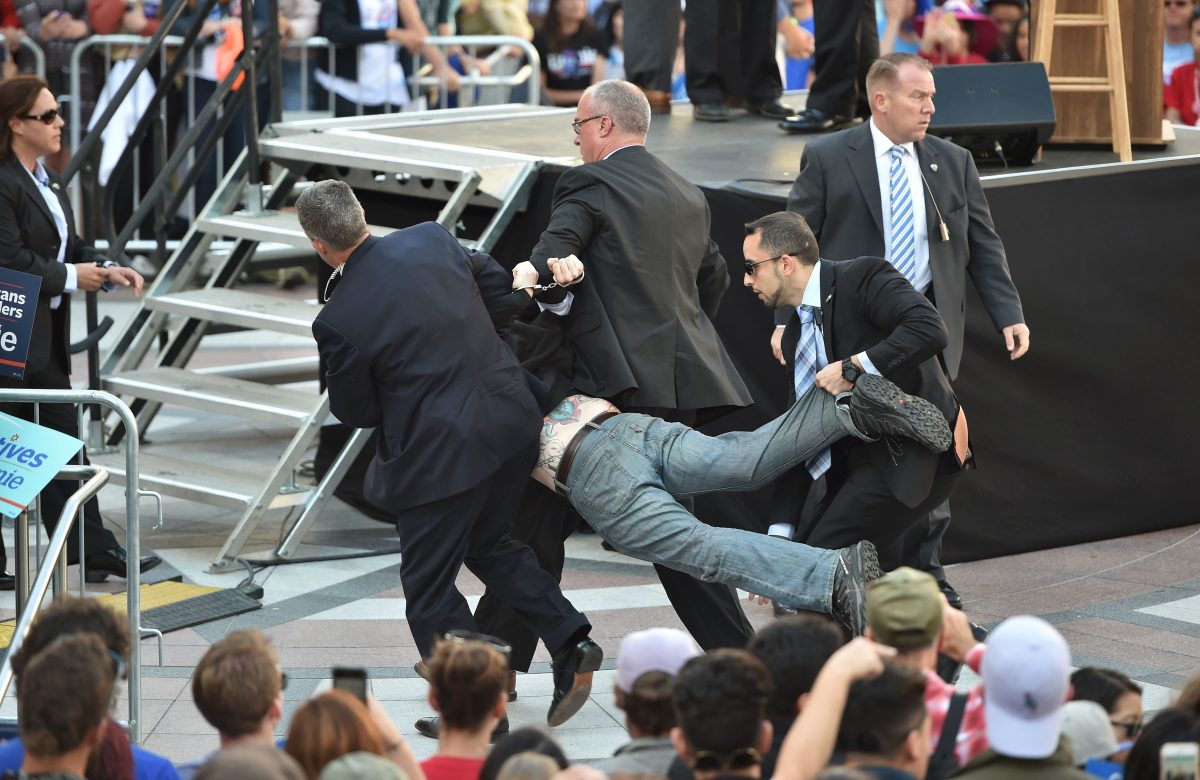US Secret Service says it doesn’t give protection to presidential candidates until 120 days before an election
Democratic presidential candidate Robert F. Kennedy Jr. on Friday said that he has not received U.S. Secret Service protection after about three months, alleging that the White House has denied his request.
“Since the assassination of my father in 1968, candidates for president are provided Secret Service protection,” Mr. Kennedy wrote on Twitter. “But not me.”
The Democratic candidate said “the Biden Administration just denied our request,” adding that Department of Homeland Security Secretary Alejandro Mayorkas reportedly told his campaign: “I have determined that Secret Service protection for Robert F Kennedy Jr is not warranted at this time.”
“Our campaign’s request included a 67-page report from the world’s leading protection firm, detailing unique and well established security and safety risks aside from commonplace death threats,” Mr. Kennedy added, noting that the “typical turnaround time for pro forma protection requests” is about two weeks.
The Department of Homeland Security (DHS), Mr. Mayorkas, and other administration officials have not publicly commented on Mr. Kennedy’s statements on Friday. The Epoch Times has contacted DHS for comment.
According to the U.S. Secret Service website, the agency doesn’t provide protection to non-incumbent presidential candidates until 120 days before the general election. Under the Secret Service’s guidelines, Mr. Kennedy would qualify for the agency’s protection in July 2024.
During the 1968 presidential campaign, Mr. Kennedy’s father, Sen. Robert F. Kennedy, was assassinated at a Los Angeles hotel. Officials have blamed communist sympathizer and pro-Palestinian activist Sirhan Sirhan for his death, but the younger Kennedy has long said that he believes other individuals were involved in his father’s death.
Before his death, Secret Service agents did not protect presidential candidates, while the federal agency had started protecting presidents who were in office after the 1901 assassination of President William McKinley. After the Kennedy assassination, Congress expanded the Secret Service’s duties to oversee the protection of presidential and vice presidential candidates, its website says.
What the Agency Says
According to the U.S. Secret Service, it is authorized to protect “major presidential and vice presidential candidates” as well as their significant others within 120 days of a general presidential election.
“As defined in statute, the term ‘major presidential and vice presidential candidates’ means those individuals identified as such by the Secretary of Homeland Security after consultation with an advisory committee,” its website adds.
It further noted that Mr. Mayorkas is the sole official who determines who can qualify as a major candidate and if such protection should commence under the U.S. Code. An advisory committee with the House speaker, House minority whip, Senate majority leader, and the Senate minority leader can also help make such determinations, the website says.

“This determination is made in consultation with an advisory committee comprised of the following individuals: Speaker of the House, House Minority Whip, Senate Majority Leader Senate Minority Leader One additional member chosen by the committee.
Recent polls have shown that Mr. Kennedy, a Harvard-educated environmental lawyer who has long spoken against certain childhood vaccines, is a distant second behind President Joe Biden in the Democratic primary. A Harvard-Harris survey released earlier this month found that Mr. Biden is leading Mr. Kennedy by about 49.5 percentage points, while Mr. Kennedy is leading self-help author Marianne Williamson by about 8 points.
At the same time, a recent survey found that Mr. Kennedy has the highest favorability rating of any presidential candidate—Republican or Democrat. Mr. Kennedy has a favorability rating of 47 percent, President Donald Trump has a favorability rating of 45 percent, Florida Gov. Ron DeSantis has a 40 percent, and Mr. Biden has 39 percent, it found.
Other Claims
Earlier this year, Mr. Kennedy drew headlines when he made claims about the assassination of President John F. Kennedy in 1963, alleging that the Central Intelligence Agency (CIA) was at least partially responsible for his uncle’s death. The initial Warren Commission Report found that Lee Harvey Oswald, who was shot and killed about two days after the Kennedy assassination, was the lone gunman—but later congressional reports and independent research have cast significant doubt on that claim.
“There is overwhelming evidence that the CIA was involved in his murder. I think it’s beyond a reasonable doubt at this point,” Mr. Kennedy said in May about the November 1963 assassination in Dallas. “The evidence is overwhelming that the CIA was involved in the murder, and in the cover-up,” he told a radio host at the time.
The CIA, meanwhile, has denied any involvement in the 35th president’s killing. An article published on the agency’s website says that allegations of CIA involvement were a “lie” that was concocted by foreign intelligence services such as the Soviet Union’s KGB. It also cast aspersions against director Oliver Stone’s 1991 film, “JFK,” which suggested that the CIA and other U.S. officials were involved.
In previous years, Mr. Kennedy has also alleged that Sirhan Sirhan, who is serving a life sentence in California, did not kill his father. Instead, he claimed again in 2021, that Mr. Sirhan fired multiple shots at his father but none of them hit the senator.
The four bullets that actually his father were fired “from within a few inches, with two leaving gun powder residue in the wounds, suggesting that the assassin was standing close behind my father, shielding his weapon with his body while all attention focused on Sirhan,” he alleged in an article published in the San Francisco Chronicle.